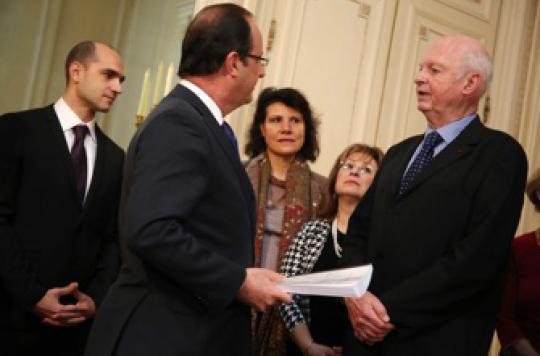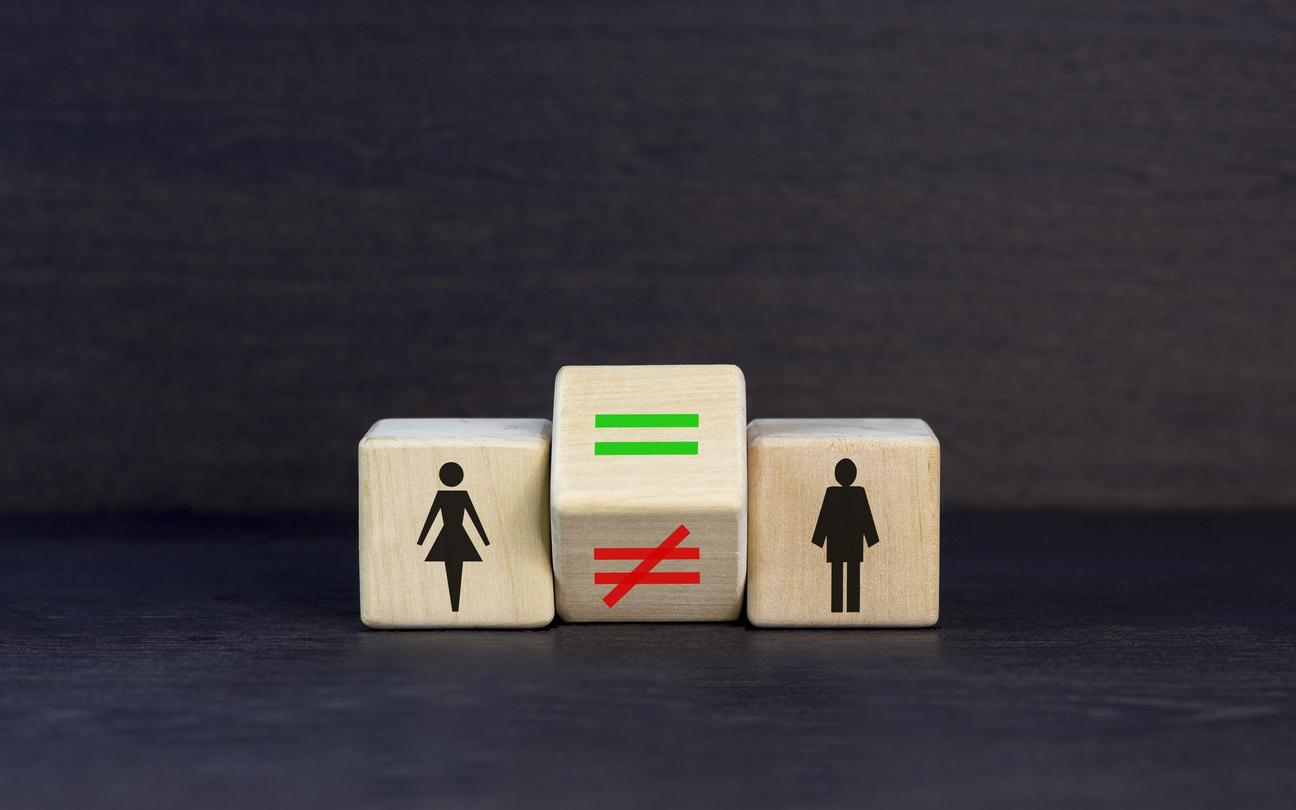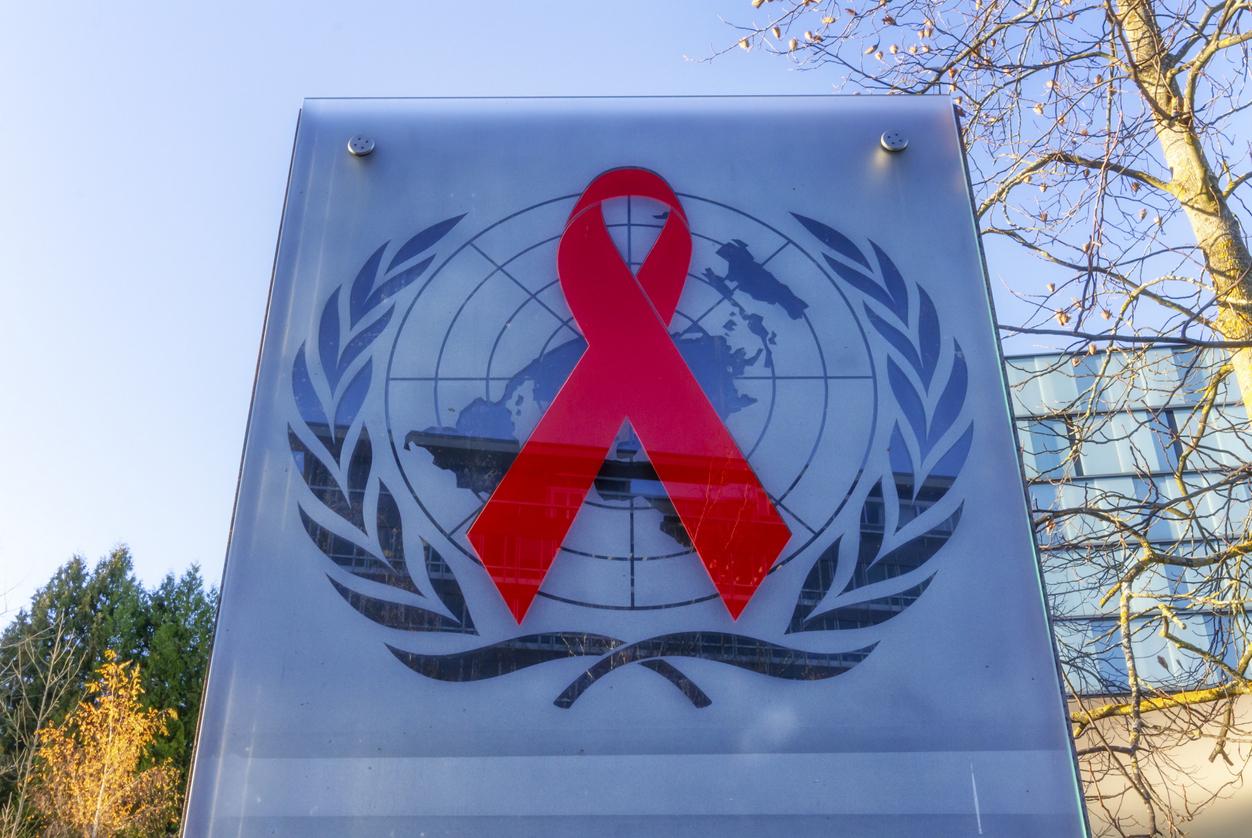A few hours before the submission of the parliamentary report on the end of life, which should serve as the basis for a new law, Pourquoidocteur looks back on ten years of debates.

We will know in a few hours the content of the report on the end of life, concocted by two deputies from opposite political sides, Jean Leonetti (UMP) and Alain Claeys (PS). A report commissioned by the President of the Republic, who is aware of how much the land is mined. Moreover, to avoid a new debate on the subject, François Hollande should make known the government’s position on this issue during the day.
92% of French people are in favor of euthanasia, according to an Ifop poll. And yet this report is unlikely to satisfy anyone. Nor the associations which campaign in favor of a law on the end of life, and which demand an effective right to assisted suicide. Neither the “anti”, who promise to lead the fight. Neither the population, which is lost in the multiple reports, missions and announcements on the end of life.
How will we die tomorrow? “In appeasement”, answers François Hollande, who wants a “law prepared within the framework of a consensus”. No revolution in sight, but a very probable extension of the Leonetti law, little known, badly applied, badly explained. And more room for the words of patients.
To understand these legal developments, Why actor looks back at the key stages of a legislative debate that has lasted for a decade.
2005: the Leonetti law forbids therapeutic relentlessness
Since the 1960s, it has been an open secret: in hospitals, some doctors have euthanized patients at the end of their life, sometimes at their request and that of their families, in the greatest illegality. The “affairs” follow one another; in most cases, judges refuse to condemn doctors, aware of the contradiction between principle and reality. And if not, they clash with a good deal of public opinion.
In 2003, the media coverage of the Vincent Humbert affair pushed politicians to take up this thorny issue and put in place a legal framework on euthanasia.
Jacques Chirac therefore entrusts a parliamentary mission to the cardiologist and UMP deputy for Antibes, Jean Leonetti. A law was introduced on April 22, 2005, which prohibited any medical relentlessness or “therapeutic obstinacy” and established the right to let die when patients refused to continue treatment, or wrote it down in their “advance directives”.
Concretely, this means that the doctor can “disconnect” a patient at the end of his life, with his agreement or that of his relatives. He is required to alleviate his suffering by administering strong painkillers, which, probably, will shorten his life.
We are not talking about euthanasia here, but rather end-of-life support: palliative care is not intended to kill, but only to relieve. The nuance is subtle, but substantial. Because the Leonetti law does not cross the barrier of the intentional act which would result in death. It condemns the deliberate injection of a lethal substance, in other words euthanasia, then already authorized in Belgium and the Netherlands.
With this law, the doctor is the only one empowered to decide to stop treatment, after having taken cognizance of the opinions of the nursing staff, of the patient if he is able to express himself, and of his relatives.
2012: François Hollande commits
Imperfect, the Leonetti law is intended to evolve, by the admission of its author. It does not respond to all situations, especially for people with incurable diseases without being terminally ill, and who ask to die.
While the debate on the end of life did not fuel the presidential campaign in 2007, François Hollande made it one of his 60 commitments for France. “I will propose that any adult in the advanced or terminal phase of an incurable disease, causing unbearable physical or psychological suffering, and who cannot be appeased, can request, under specific and strict conditions, to benefit from medical assistance. to end his life with dignity ”.
He entrusted the former chairman of the Ethics Committee, Didier Sicard, with the task of “obtaining the opinion of society” during public debates on the need to go further than the Leonetti law by authorizing an active form of ‘euthanasia.
2013: The Sicard report paves the way for terminal sedation
Six months later, the Sicard report is made public. The man had promised “not to slip away”. It’s done. He thus proposes that terminal sedation (administration of opiates leading to coma and then death) can be administered by doctors to patients who make a clear, unequivocal and repeated request for it. The Sicard mission also sets out the conditions for assisted suicide – the possibility for a patient with an incurable disease to ingest a lethal substance, provided by his doctor. But he doesn’t officially recommend it.
The report reaffirms its formal opposition to active euthanasia, a “radical” medical gesture which would cross “the barrier of a ban”. But it leaves an important place to the will of the patient. The Sicard mission underlines that the Leonetti Law still requires “a major effort of appropriation (…) by society and by all doctors and caregivers”.
And that’s saying something. Finally, with the concept of terminal sedation, the Sicard report only recalls a provision of the Leonetti law, little known to doctors and the French, and poorly applied. A vast survey by INED, carried out in 2012, showed that in more than one in five cases, the doctor makes a decision likely to accelerate the end of life without discussing it with the patient, even though he is aware and able to talk about it. In addition, less than 2% of patients wrote advance directives and less than one in two designated a trusted person to speak on their behalf.
The Order of Physicians pleads for a duty of humanity
Divided between the duty of assistance to a person who suffers and the cases of conscience of the doctor confronted with the end of life, the ordinal authority remains in the nuance. First do no harm (primum non nocere), then, favor collegiality over the decision of a single practitioner. THEThe Order of Physicians opens the door to “adapted, deep and terminal sedation delivered with respect for dignity”.
2014: CCNE denounces the “scandal” of “badly dying”
In its latest opinion, made public in October, the National Consultative Ethics Committee (CCNE) summarizes two years of public debate. He points to a “scandalous” situation, “the abandonment of a vast majority of people at the end of their lives” because of a crying lack of access to palliative care. Thus, according to its president, Prof. Jean-Claude Ameisen, “80% of the people who should have access to it are not entitled to it”.
CCNE reaffirms that terminal sedation must be a patient’s right – even if some on the committee speak more of deep sedation, to relieve pain without the aim of shortening life. But above all, he raised the issue of advance directives, with the idea that they should become binding. For patients who have not drawn up directives, it proposes a review of the collegial procedure, without hierarchy between the decision-making actors (doctors, family, patients). And in case of disagreement, to call for mediation.
CCNE admits “the persistence of deep differences”, including within it. The parliamentary report delivered this morning will have a hard time putting an end to it.
.















